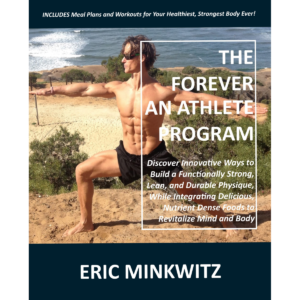Why You Need These 5 Powerful Nutrients
My working definition of sports performance nutrition is “identifying the whole food sources that contain the basic micronutrients and macronutrients necessary to sustain energy during athletic events, replenish muscle glycogen stores following exercise, repair and build lean muscle tissue, and reduce overall systemic inflammation following rigorous activities or injury.” This is a working definition, and thus can be augmented.
Since knowledge is power, the essence of performance nutrition can be applied to any individual looking to gain an edge, whether it be physical, mental, or both. Thus, personal knowledge of nutrition can help either the college student preparing for an exam, a truck driver embarking on an overnight shift, or a surgeon preparing for a long procedure. Below are five powerful performance nutrients and their whole food sources:
- Zinc is involved in a myriad of biochemical reactions. It is especially needed for cellular repair, for the production of DNA and RNA, as an anti-inflammatory agent, and for testosterone synthesis. Great sources include lean meats, pork, lamb, game, oysters, goose, turkey, duck, beans, milk, yogurt, cheese, cottage cheese. Be sure to be cognizant of the overall saturated fat content in these foods.
- Magnesium is involved in numerous chemical reactions, and predominantly maintains healthy bone and teeth as well as supporting nerve and muscle contractions. You can find it in pumpkin, swiss chard, sunflower seeds, halibut, beans, spinach, and soymilk, according to www.whfoods.com.
- Boron may enhance bone strength by preventing calcium loss, and thus can be beneficial to those with osteoporosis. It has been suggested that it can increase testosterone levels, since it provides chemicals called hydroxyl groups, which are necessary for the production of some steroid hormones (Ullis, K, “Super T”, 1999). According to www.algaecal.com, good sources include red apples, grape juice, almonds, raisins, prunes, hazel nuts, apricots, and peanut butter.
- Vitamin E, a fat-soluble antioxidant, helps counteract free radicals from environmental toxins, smoke, sun, and heavy workouts. According to S. Pratt in “Superhealth” (2009), great sources include avocados, sunflower seeds, peanuts, wheat germ, bell peppers, olive oil, and blueberries.
- Potassium is a vital electrolyte necessary for skeletal and smooth muscle contractions, along with sodium, calcium, chloride, and magnesium. It helps to sustain cellular fluid balance, and can reduce hypertension. Potassium-rich foods include swiss chard, sweet potatoes, potatoes, spinach, papayas, clams, carrot juice, squash, figs, pumpkins, and berries. (Pratt, S., “Superhealth”, 2009)




Leave A Comment